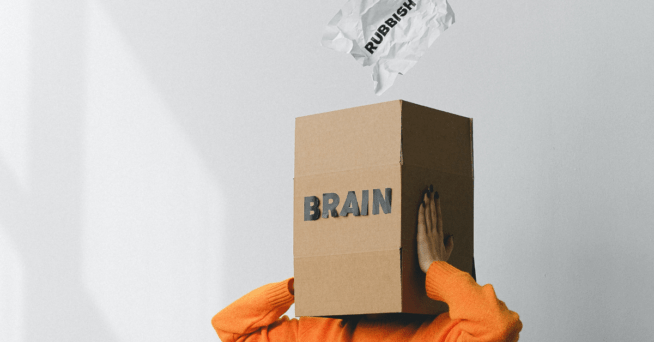Self-care evangelists sometimes say things like “five minutes of mindfulness are enough to improve your life”.
This is bullshit.
According to them you can take care of yourself while not disrupting your daily schedule at all. You can do stretches while brewing your coffee. You can do yoga sessions in the office, or listen to meditation tracks in your car.
I’m all for efficiency hacks. But in my experience, it’s a useless approach.
You can’t think of self-care as something you squeeze into an overpacked schedule.
Taking time for yourself is part of the point. If you try to juggle it with your other responsibilities, you just end up feeling overwhelmed and guilty.
“Taking time for yourself” means more than just scheduling a free evening from time to time. You can’t really relax if you know you have to step back into the hamster wheel in the morning.
Does This Mean That Self-Care Can Be Selfish?
Sure. Anything can be taken too far.
I’ve met people who are obsessed with their health to a disturbing degree. It dominates every conversation. It takes precedence over maintaining their friendships and spending time with their family. As much as they talk about living a good life, they don’t care about others all that much.
Hell, we’ve seen it during the worst parts of the pandemic. Everyone was antsy and claustrophobic, but some assholes broke lockdown “for their mental health”. They chose to endanger everyone rather than live with some discomfort. They even excused it by saying they were engaging in self-care.
Self-care can be used as an excuse for self-absorbed acts. But it’s not inherently selfish.
It’s all about finding the right balance. You have to decide what counts as an acceptable sacrifice and what doesn’t. It is possible to make self-care a significant part of your life without ignoring everything else.
Realism Is What Makes It Tenable
While I’m complaining about other people’s health obsessions, I have to be honest.
When I was younger, I thought (and talked) way too much about my blood pressure and blood sugar levels. Any small change would send me running to my physician. I was very, very careful about what I ate and how much sleep I got. I missed out on some good times because I was so absorbed in taking care of myself.
Bizarrely, this changed when I actually got diagnosed with a blood pressure problem. It was a reality check. I reevaluated my life and decided I didn’t want to spend it afraid of being sick.
Self-care stopped being some ideal to live up to and became a loose collection of daily habits. I no longer worry about getting it right all the time. I don’t talk about it much.
But I do make big decisions with my physical and emotional health in mind. That’s much more important than the details.
You Have to Seize Power Over Your Life
Self-care means taking responsibility.
Advertisers like to use the concept to manipulate us and make us feel even worse. If you haven’t bought the newest overpriced gadget, are you really taking care of yourself at all?
But you’re not some helpless bystander, waiting for experts to fix you.
You don’t need more material possessions or seminars to make you better.
You’re in charge of your body, your mind, and your time.
Enjoy life’s small pleasures, plan happy activities, practice gratitude exercises, and mindfulness meditation. If needed, make better friends, move to a better place, learn more about your issues, and don’t hesitate to go to psychotherapy.
Make your life decisions accordingly, and don’t be afraid to give up on some things in the process.
 Eric Sangerma is an entrepreneur, founder of TrulyScaled.com and Wholistique.com and co-host of The Wholistique Show which explores how to reach peak personal and professional performance while living a minimal and balanced life. Follow him on LinkedIn and Twitter.
Eric Sangerma is an entrepreneur, founder of TrulyScaled.com and Wholistique.com and co-host of The Wholistique Show which explores how to reach peak personal and professional performance while living a minimal and balanced life. Follow him on LinkedIn and Twitter.
Image courtesy of SHVETS production.












